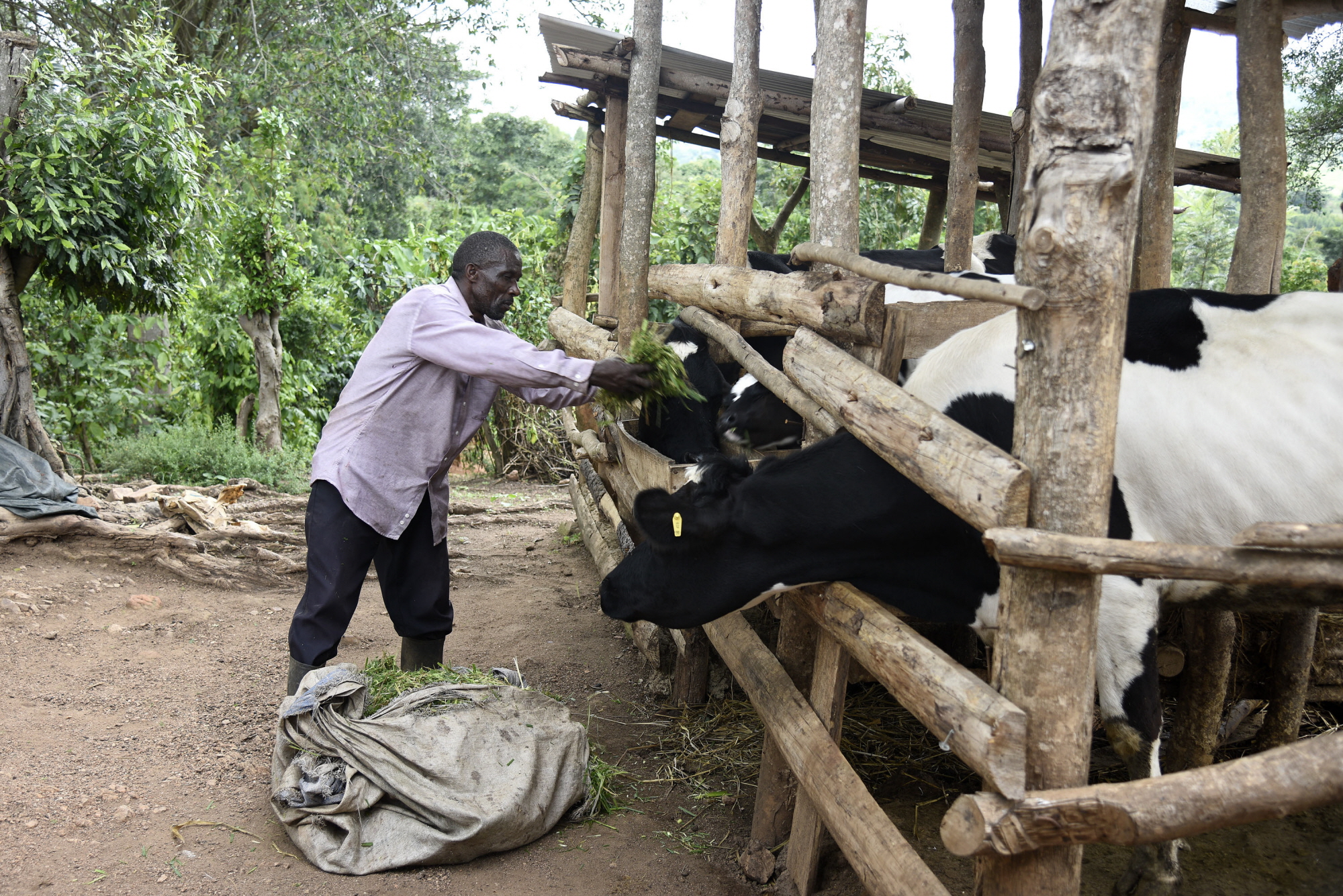De-risking investment to boost Uganda’s beef and dairy industries

Good investment needs a good policy environment.
With that in mind, FAO’s AgrInvest Uganda is teaming up with two Ugandan institutions and FAO’s Monitoring and Analysing Food and Agricultural Policies (MAFAP) programme to advance the country’s dairy and beef industries through evidence-based policy dialogue.
AgrInvest Uganda, a joint European Union and FAO initiative, is supporting the Uganda Development Bank (UDB) to increase its agri-food lending portfolio. At the same time, it is working to enhance the policy environment for more responsible investing in the country’s dairy and beef sectors. These sectors, identified as key industries in Uganda’s National Development Plan (2021-2025), account for about 73 percent of the gross value of all livestock output.
Under this new partnership, Uganda’s Dairy Development Authority (DDA) will coordinate the Dairy Multi-Stakeholder Platform, which brings together dairy farmers, cooperatives, traders, processors, input suppliers, milk suppliers, development partners, consumers, financial institutions and researchers.
Similarly, the Uganda Agribusiness Alliance (UAA) will work with national and zonal beef platforms. These platforms involve small, medium and large-scale beef producers, local and national producer organizations, cattle traders, abattoir owners/operators, butchers, cattle transporter associations, meat traders, meat processors, cattle feed providers, animal health workers and policy-makers.
FAO Economist and AgrInvest Uganda Project Leader Julien Vallet said these multistakeholder policy dialogues “will make the beef and dairy value chains more appealing to investors, including the UDB, by enhancing the policy environment for public and private investments.”
Pinpointing policy issues and solutions
MAFAP has a longstanding record of engaging with government institutions and research organizations to assess policy constraints and provide analytical evidence and solutions on the most pressing agricultural policy issues.
During technical meetings, MAFAP introduced its price incentives indicators to the DDA and the National Beef Policy and Advocacy Task Force, comprising members of the beef platforms. A price incentives analysis by the MAFAP team can identify bottlenecks and policy distortions affecting Uganda’s beef and dairy value chains, like import tariffs and transport costs.
According to Lucia Battaglia, who co-led trainings on the MAFAP methodology with Alva Kretschmer, the “MAFAP price incentives indicators can provide Uganda’s beef and dairy authorities with sound evidence to support informed policy dialogue and also be used to advocate for policy reforms when and where they are needed.”
In parallel, AgrInvest and MAFAP will collaborate with the DDA on a series of studies to understand if prices are appealing for smallholder Ugandan milk producers, how the country’s milk collection centres are performing and national milk consumption trends.
For the beef value chains, the team will look at price incentives and Uganda’s export competitiveness within the sub-region.
MAFAP will translate the technical evidence from these studies into actionable and feasible solutions that can feed into policy and regulatory changes and investment for uptake by the Ugandan authorities.
